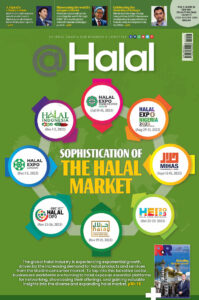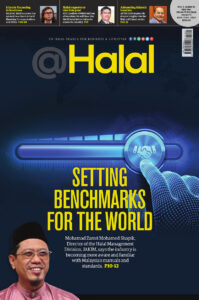Islamic finance has been around for over three decades in Malaysia, starting with the introduction of Islamic banking, takaful and Islamic capital market in the 1980s. Since then, many developments have taken place. Malaysia now has a well-developed Islamic finance ecosystem with many players, products and services and frameworks that govern the operations of Islamic finance in the country.
In conjunction with The 2022 United Nations Climate Change Conference (COP 27), Capital Markets Malaysia organised a panel discussion at Malaysia Pavilion in Blue Zone, Sharm El Sheikh, Egypt, titled ‘Malaysia’s Experience in Leveraging Islamic Finance to Develop a Sustainable Finance Ecosystem”. The session, moderated by Datuk Zainal Izlan Zainal Abidin, Deputy Chief Executive, Securities Commission Malaysia, featured five speakers discussing how Islamic finance can work together with sustainable finance to address sustainability challenges globally.
“When we were looking at the next phase of development for the Islamic capital market in 2013 or 2014, we were looking at how we can create another driver for the Islamic capital market in Malaysia as well as globally,” shared Zainal.
“At the time, sustainability was not a big theme as we have seen today or in the last few years. But there was already some emergence of discussions on sustainability, or what we call sustainable and responsible investing or SRI in Malaysia. It is a term that we use to capture this segment. And with that came the birth of the first framework that integrated Islamic finance with sustainable finance, the SRI Sukuk framework.”
Islamic finance facilitates the transition to sustainable finance
Jefferi Hashim, CEO of CIMB Investment Bank, said the SRI Sukuk framework was instrumental. The framework helps Malaysia’s transition to sustainable finance easier. He noted that other Muslim countries also experienced the same scenario.
“Unfortunately, most Islamic assets are still concentrated within Muslim countries. The challenge for Islamic financing is how it will work in non-Muslim countries. There’s plenty of growth for us to do locally and in Muslim countries. The growth is rapid. As we do that, eventually we’ll reach critical mass, which will be a viable alternative source of capital for others to emulate.”
Fad’l Mohamed, CEO of Maybank Investment Bank, emphasised that financial institutions should leverage Islamic finance to encourage sustainable finance adoption. He pointed out the synergy and alignment between Islamic and sustainable finance. He shared that sustainability considerations were complementary to Shariah-investing principles and had the potential to improve investment returns and outcomes.
“Financial intermediaries should leverage to harmonise aspirations and encourage large base clients within the growing Islamic finance market to go a little further and start thinking about potential eligible projects that they can adopt from the existing activities to see how that can be aligned with sustainable objectives,” Fad’l elaborated.
When asked how to encourage Islamic finance to fund some infrastructure projects, Raja Amir Raja Azwa Shah, CEO of HSBC Amanah, said the ground was always fertile to use Islamic financing. However, people will always come to the tension between what is durable and not durable from a cash flow perspective.
Bursa Malaysia’s initiatives
Dr Wei-nee Chen, Executive VP, Head of Carbon Market, Bursa Malaysia, shared that a framework released by Bursa Malaysia in September required companies to disclose some common sustainability matters with the appropriate indicators.
“But moving in the longer run, the financial year ending 2025, we are encouraging private limited companies (PLCs) to align their climate disclosures with the Task Force on Climate-related Financial Disclosures (TCFD).”
From her experience working in a carbon-intensive oil and gas sector, Chen said the indices introduced by Bursa Malaysia had helped push a company to thrive even in challenging times to achieve a four-star rating.
Encouraging sustainable financing
Touching on the readiness level of corporates in pursuing sustainable agenda, Faroze Nadar, Executive Director of UN Global Compact Network Malaysia & Brunei, shared some findings from the Malaysia Businesses Sustainability Pulse Report (SPR) 2022.
“From the surveys, one-third of 261 Malaysian companies indicated they had no plan for sustainable finance. Surprisingly, corporations were less inclined than SMEs. However, 42 per cent showed positive interest in learning about sustainable financing, and 24 per cent are ready to embark on such an initiative. Looking at the SME space, 40 per cent of them said it was irrelevant.”
Faroze said the organisation wished to play a role in sustainable and Islamic finance and work with more corporates to let them know the whole organisation approach can be made through a sustainable financing approach.
Fad’l added: “Given Malaysia’s track record of global leadership in Islamic capital markets, we’re very well positioned to innovate further in this space. We must advocate for Islamic finance potential to address the challenges faced by conventional sustainable finance space. Doing so can further boost the Islamic sustainable finance industry.”








